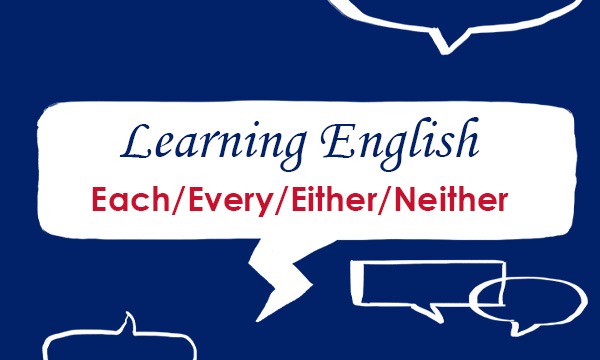
The words each, every, either, and neither are distributives. Distributives are determiners that are used to talk about how something is shared out or divided.
Each, every, either, and neither are used with a singular noun.
Each child was given a balloon.
I remember every detail of our conversation.
Either child could win the prize.
Neither plan was successful.
Each and every
Each and every are not used with proper nouns.
Each is used to refer to separate persons or things in a group of two or more.
Four girls came and each one sang a song.
Each ticket should have a number on the back.
Every is used to refer to all the persons or things in a group of three or more.
Every teacher has a key to the building.
Katrina danced with every boy at the party.
Every can be used in front of ordinal numbers. ‘Every second/fourth/sixth house’ means the second house, the fourth house, the sixth house, and so on.
I have to work every third weekend.
Every fourth house has a garage.
Either
Either is used to talk about one of two people or things.
They did not appoint either man as captain.
Either restaurant would suit me.
Neither
Neither is used to exclude both of two people or things that are being referred to.
They appointed neither man as captain.
Neither restaurant is cheap enough.
For further information on English Grammar, visit: https://grammar.collinsdictionary.com/easy-learning
Come back for other blogs on using English in everyday situations: https://blog.collinsdictionary.com/language-learners/learning-english/
All opinions expressed on this blog are those of the individual writers, and do not necessarily reflect the opinions or policies of Collins, or its parent company, HarperCollins.



